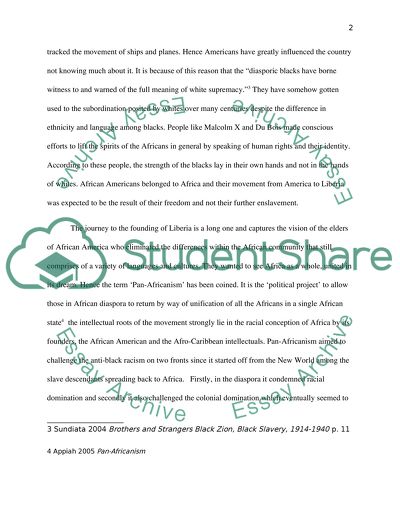Cite this document
(“Black Diaspora and the Founding of Liberia Research Paper”, n.d.)
Black Diaspora and the Founding of Liberia Research Paper. Retrieved from https://studentshare.org/history/1485176-black-diaspora-and-the-founding-of-liberia
Black Diaspora and the Founding of Liberia Research Paper. Retrieved from https://studentshare.org/history/1485176-black-diaspora-and-the-founding-of-liberia
(Black Diaspora and the Founding of Liberia Research Paper)
Black Diaspora and the Founding of Liberia Research Paper. https://studentshare.org/history/1485176-black-diaspora-and-the-founding-of-liberia.
Black Diaspora and the Founding of Liberia Research Paper. https://studentshare.org/history/1485176-black-diaspora-and-the-founding-of-liberia.
“Black Diaspora and the Founding of Liberia Research Paper”, n.d. https://studentshare.org/history/1485176-black-diaspora-and-the-founding-of-liberia.


